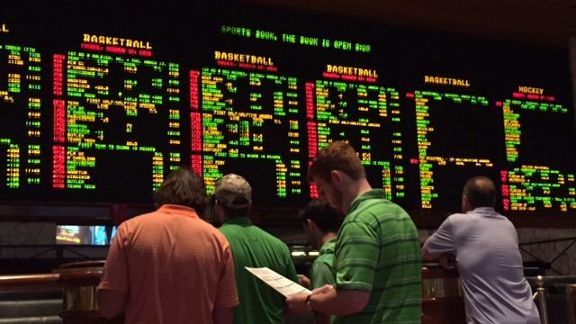Bankroll management may not be the most interesting sports betting topic, but it is one of the most important. For bettors, sports betting is a skill, the same as playing poker or investing in the stock market, and the one tool that all bettors need-in the same way a roofer needs a hammer or a surgeon needs a scalpel-is money. A bettor can be the best handicapper in the entire world, but if he does not have money or manage his money correctly then he might as well change professions because he will never be in action.
Money is the most important asset a sports bettor has in his arsenal, and learning to protect it is an essential skill for a gambler. Let’s take a closer look at bankroll management and go over a few tips for getting the most out of your money.
Setting a Unit Amount
The best way to manage a bankroll is to set a betting unit, because deciding how much to bet based on a whim is not the best way to make a profit at the end of the year. That unit could be any number from $1 to $1,000 to a $5,000-whatever your bankroll can handle-but it should be your base bet, the minimum you are comfortable losing. Of course, you will not exclusively make one-unit bets, but that standard amount should be the unit that you would use on a game that you have a strong lean towards.
Setting a Maximum Bet
TGR employs a 1000-unit betting system where the minimum wager is 300-unit and the maximum is 1000-units. The idea is to move your wagers around based on the strength of each game. Bettors should decide what their 300-unit maximum is, which would also be the most they are comfortable losing in a single game. Of course, this number should coincide with the amount of money in gambler’s arsenal and should be around 10 percent of his total bankroll. Betting is a volatile endeavor, and placing large chunks of your money on single games in never a good idea.
Setting Limits
Once you have a betting unit set and 1000-bet unit system in place, the next step is to decide how much you want to risk in a day or even weekend. During football season a bettor can stay in action for an entire day on both Saturday and Sunday, and the best course of action is to set a limit on what you are comfortable losing in a single day. Once a gambler gets into a losing streak, his emotions get involved and his handicapping process becomes compromised. Taking a break for the day after a few big losses can be the difference between being a winning or losing bettor.
Keep records and separating money
Not keeping track of your sports betting and mixing betting money with normal money is a sure-fire way to turn into a losing player. A bettor needs to constantly confront his wins and losses, and not keeping track or separating money is an easy way to stay in denial. A gambler will always exaggerate his wins and downplay his losses, and the best way to guard against this is to keep detailed records of your betting. Keep your sports bankroll separate if you can, and go over your results on a weekly basis.






